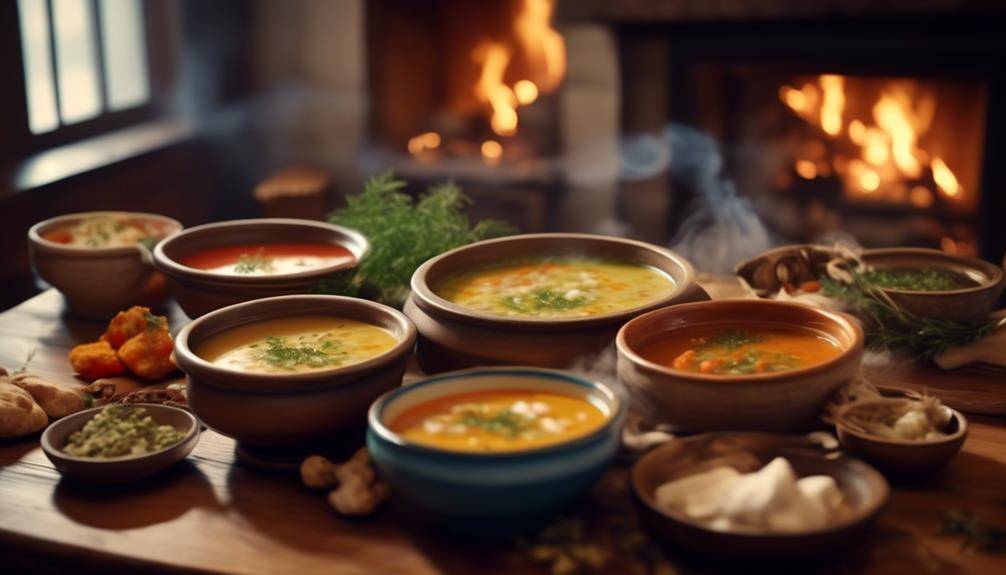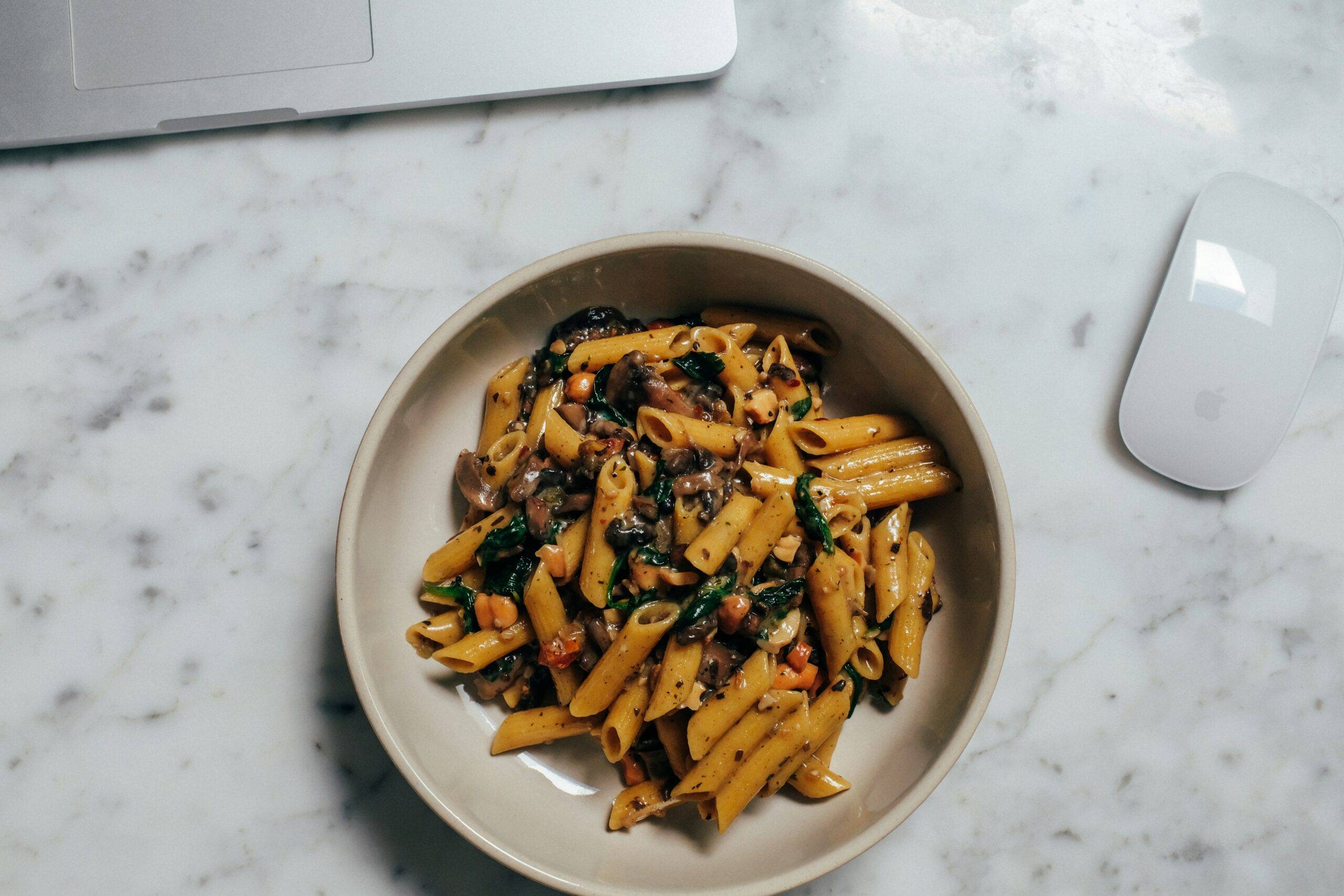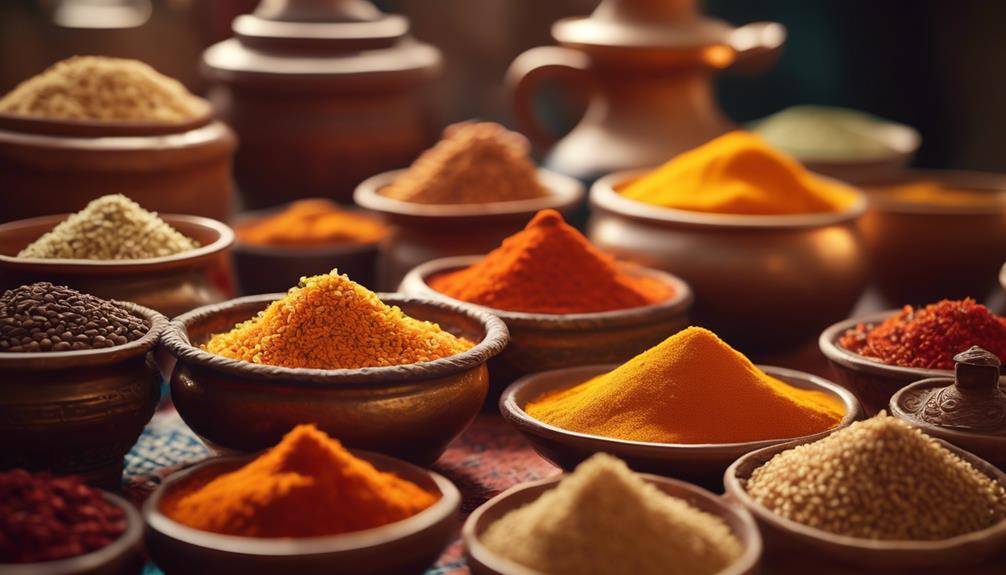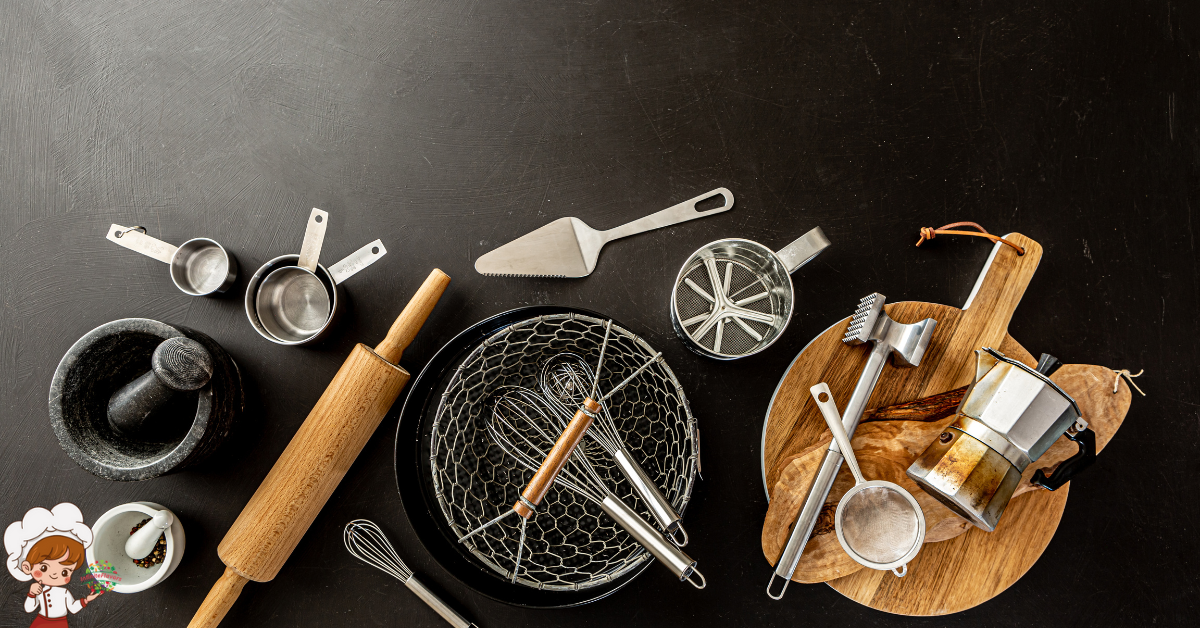Important Facts About Lebanese Food And Wine Pairings
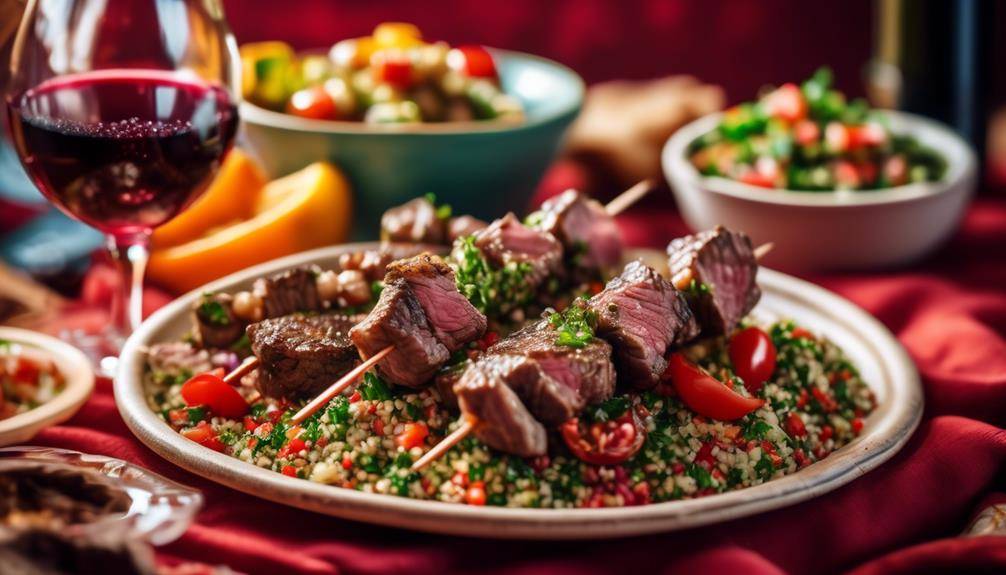
Lebanese Food And Wine Pairings; Like a perfectly paired symphony, Lebanese food and wine can create a harmonious blend of flavors and aromas that dance on your taste buds. From the vibrant mezze platters to the succulent seafood dishes and tantalizing vegetarian delicacies, the Lebanese culinary tradition offers a diverse range of flavors that are begging to be complemented by the right wine. But where do you begin?
How do you navigate the world of Lebanese wine and find the perfect match for your favorite Lebanese dishes? Join us on a culinary journey as we explore the art of Lebanese food and wine pairings, uncovering the hidden gems and surprising combinations that will elevate your dining experience to new heights.
The Basics of Lebanese Wine
Discover the essence of Lebanese wine as you delve into the rich history, unique terroir, and exquisite craftsmanship that sets it apart on the global stage. Understanding wine fermentation and exploring Lebanese wine terroir are key to appreciating the distinctiveness of this ancient wine-making region.
Lebanon’s winemaking tradition dates back thousands of years, making it one of the oldest wine-producing countries in the world. The Phoenicians, who inhabited this land as early as 3,000 BC, played a pivotal role in spreading viticulture throughout the Mediterranean. Today, Lebanon’s winemakers continue to honor this heritage by producing wines of exceptional quality and character.
To truly understand Lebanese wine, one must first grasp the concept of wine fermentation. This process involves the conversion of grape juice into alcohol by yeast. It is during fermentation that the unique flavors and aromas of the grapes are developed. Lebanese winemakers take great care in this process, using traditional techniques combined with modern technology to achieve the desired results.
Equally important in the world of Lebanese wine is the concept of terroir. Terroir refers to the combination of factors that influence a wine’s character, including the climate, soil, and topography of a particular vineyard. Lebanon’s diverse terroir, influenced by the Mediterranean Sea, the Lebanon Mountains, and the Bekaa Valley, gives its wines a distinct sense of place. From the cool climate vineyards of the northern region to the sun-drenched slopes of the Bekaa Valley, each wine tells a unique story of its origin.
Understanding Lebanese Wine Regions
Lebanese wine regions offer a captivating tapestry of diverse landscapes and microclimates that contribute to the distinctive characteristics found in each bottle. These regions are influenced by the unique climate and terroir, as well as the grape varieties and production techniques employed. Here are four key factors that contribute to the complexity and quality of Lebanese wines:
- Climate: Lebanon’s wine regions benefit from a Mediterranean climate, characterized by hot summers and mild winters. The coastal areas experience cooling sea breezes, while the higher altitude regions benefit from cooler temperatures. This range of climates allows for the cultivation of a variety of grape varieties and contributes to the balance and complexity of Lebanese wines.
- Terroir: Lebanon’s diverse terroir encompasses a wide range of soil types, including limestone, clay, and gravel. These different soil compositions, combined with varying altitudes and slopes, create unique growing conditions for grape vines. The terroir plays a crucial role in imparting distinct flavors and characteristics to Lebanese wines.
- Grape Varieties: Lebanese wine regions are known for their rich diversity of grape varieties. The most prominent indigenous grape variety is the red grape, “Cinsault,” which is renowned for its fruity and spicy character. Other popular grape varieties include Cabernet Sauvignon, Syrah, and Merlot for red wines, and Sauvignon Blanc and Chardonnay for white wines. These grape varieties contribute to the complexity and depth of Lebanese wines.
- Production Techniques: Lebanese winemakers have adopted both traditional and modern production techniques to craft high-quality wines. Many wineries practice sustainable viticulture and employ minimal intervention methods to preserve the natural flavors of the grapes. Oak aging is also commonly used to enhance the structure and complexity of the wines.
Understanding the unique characteristics of Lebanese wine regions, including the climate and terroir, as well as the grape varieties and production techniques, allows wine enthusiasts to appreciate the intricacies and flavors that make these wines truly exceptional.
Classic Lebanese Mezze and Wine Pairings
Indulge in the harmonious symphony of flavors as you explore the art of pairing classic Lebanese mezze with exquisite wines. Understanding traditional Lebanese mezze is key to creating the perfect pairing that elevates both the food and the wine. Mezze, which consists of small, flavorful dishes, is a true reflection of Lebanese culinary culture. It is a celebration of the country’s rich history and diverse influences, combining elements from the Mediterranean, Middle Eastern, and North African cuisines.
When it comes to pairing mezze with wine, it is important to consider the balance of flavors. The wide range of ingredients and spices used in Lebanese cuisine can create complex and vibrant flavors, and the right wine can enhance these flavors even further. For example, the smoky and earthy flavors of grilled eggplant and tahini-based dishes pair beautifully with a light-bodied red wine, such as a Lebanese Cabernet Sauvignon or a French Pinot Noir. The acidity and fruitiness of these wines complement the richness of the dishes without overpowering them.
For seafood mezze, such as grilled fish or shrimp, a crisp and refreshing white wine is the perfect choice. Lebanese whites, like Chardonnay or Sauvignon Blanc, offer a delightful balance of acidity and fruity notes that complement the delicate flavors of the seafood. The citrusy undertones in the wine can enhance the brightness of dishes like tabbouleh or fattoush, while the crispness cuts through the richness of dishes like hummus or baba ganoush.
Pairing Lebanese Seafood Dishes With Wine
Enhance your culinary experience with the perfect wine pairing for Lebanese seafood dishes. Lebanese cuisine is known for its fresh and flavorful seafood, and finding the right wine to complement these dishes can elevate your dining experience to new heights. When exploring Lebanese wine regions, consider these four wine pairings for Lebanese seafood dishes:
- Chardonnay: This full-bodied white wine is a versatile choice that pairs well with a variety of seafood dishes. Its buttery texture and tropical fruit flavors complement the richness of grilled or baked fish, while its acidity cuts through the richness of creamy seafood pastas.
- Sauvignon Blanc: With its vibrant acidity and herbaceous notes, Sauvignon Blanc is an excellent choice for lighter seafood dishes like grilled shrimp or ceviche. Its crispness and citrus flavors provide a refreshing contrast to the delicate flavors of the seafood.
- Rosé: Lebanese rosés are known for their light and fruity character, making them a great option for seafood dishes. The subtle sweetness of a rosé can enhance the flavors of grilled octopus or shrimp skewers, while its acidity keeps the palate refreshed.
- Cabernet Sauvignon: If you prefer red wine with your seafood, a Lebanese Cabernet Sauvignon can be a surprisingly good match. The bold flavors and firm tannins of this red wine can complement heartier seafood dishes like grilled salmon or tuna steak.
Exploring Vegetarian Lebanese Delicacies With Wine
Discover the perfect wine pairings to elevate your dining experience with the diverse range of vegetarian Lebanese delicacies. Lebanese cuisine boasts an array of delectable vegetarian options that are sure to please even the most discerning palate. From mezze platters filled with flavorful dips and spreads to hearty vegetable stews and fragrant rice dishes, there is something for everyone to enjoy. As you explore the world of traditional Lebanese dishes, it is essential to select the right wine to enhance the flavors and elevate your culinary experience.
When it comes to mezze, a delightful assortment of small plates, a light and crisp white wine is an excellent choice. The acidity and freshness of a Sauvignon Blanc or a Pinot Grigio complement the creamy hummus, tangy tabbouleh, and smoky baba ganoush. Their citrusy notes and vibrant flavors harmonize with the aromatic herbs and spices commonly found in Lebanese cuisine.
For heartier vegetarian stews, such as foul moudammas or bamieh, a medium-bodied red wine like a Grenache or a Syrah is a wonderful accompaniment. These wines offer a balance of fruitiness and earthiness that pairs well with the robust flavors of the stews. The tannins in the red wine also help to cut through the richness of the dish, creating a harmonious combination.
When indulging in a rice-based dish like mujadara or stuffed grape leaves, a light and fruity red wine such as a Beaujolais or a Pinot Noir is an excellent choice. These wines have a delicate flavor profile that complements the subtle nuances of the rice and spices without overpowering them.
Wine Pairings for Popular Lebanese Meat Dishes
When it comes to pairing wine with popular Lebanese meat dishes, there are a few key points to keep in mind. Firstly, lamb dishes, with their rich and robust flavors, are best complemented by a hearty red wine, such as a Cabernet Sauvignon or a Syrah. Secondly, chicken dishes, which tend to be lighter and more delicate, pair beautifully with a crisp and refreshing white wine, like a Sauvignon Blanc or a Chardonnay. Lastly, for beef dishes, a versatile and medium-bodied rosé wine, such as a Grenache or a Sangiovese, strikes the perfect balance between the boldness of red wine and the freshness of white wine.
Lamb and Red Wine
To fully appreciate the rich flavors of popular Lebanese meat dishes, such as lamb, it is essential to carefully select a complementary red wine that will elevate your dining experience to new heights. The robust and succulent nature of lamb calls for a red wine that can match its intensity and enhance its taste. Here are four red wine options that will perfectly pair with lamb:
- Cabernet Sauvignon: This full-bodied red wine with its bold tannins and rich flavors of blackcurrant and tobacco will beautifully complement the richness of lamb dishes.
- Syrah/Shiraz: With its deep purple color and notes of blackberry, pepper, and spice, Syrah/Shiraz brings out the earthy flavors of lamb and adds complexity to the overall taste.
- Merlot: Known for its smooth and velvety texture, Merlot’s ripe plum and cherry flavors provide a harmonious balance to the tender and juicy lamb.
- Grenache: This medium-bodied red wine offers vibrant red fruit flavors and a touch of spice, making it an excellent choice to pair with grilled or roasted lamb.
With these red wine options, your lamb dishes will be elevated to a whole new level of gastronomic delight.
Chicken and White Wine
Pairing chicken with the right white wine can elevate your Lebanese dining experience to new heights. When it comes to chicken dishes, the delicate flavors and textures call for a wine that enhances without overpowering. For lighter chicken dishes, such as grilled chicken or chicken salad, a crisp and refreshing white wine like Sauvignon Blanc or Pinot Grigio is an excellent choice. These wines complement the poultry’s subtle flavors and provide a clean, citrusy finish.
On the other hand, if you are enjoying a richer chicken dish with creamy sauces or spices, consider a medium-bodied white wine like Chardonnay or Viognier. These wines add depth and complexity to the meal, enhancing the flavors of the chicken. For those who prefer bubbles, a sparkling wine, such as Prosecco or Champagne, can also be a delightful pairing with chicken dishes, providing a lively effervescence that complements the poultry’s versatility. So, the next time you indulge in a Lebanese chicken dish, be sure to choose the perfect white wine to enhance your dining experience.
Beef and Rosé Wine
Elevate your Lebanese dining experience even further by exploring the perfect wine pairings for popular beef dishes, specifically the delightful combination of beef and rosé wine. When it comes to grilling techniques for beef, Lebanese cuisine offers a variety of flavorful options that can be beautifully complemented by a glass of rosé. Here are four incredible beef dishes and their ideal rosé wine pairings:
- Shish Taouk: This succulent grilled chicken skewer dish is often made with marinated beef as well. The tender meat pairs perfectly with a crisp and fruity rosé, enhancing the smoky flavors.
- Kafta: Made from ground beef mixed with herbs and spices, kafta is a beloved Lebanese dish. Enjoy it with a dry rosé that has a touch of acidity to balance the richness of the meat.
- Shawarma: Thinly sliced marinated beef cooked on a vertical spit, shawarma is a classic Lebanese street food. Pair it with a light and refreshing rosé to cut through the savory flavors.
- Kibbeh: These delicious meatballs are made from ground beef mixed with bulgur wheat and spices. A rosé with a hint of sweetness will beautifully complement the savory and aromatic kibbeh.
Indulge in the perfect harmony of beef and rosé wine, and let your taste buds be transported to the vibrant flavors of Lebanese cuisine.
Enhancing the Flavors of Lebanese Spices With Wine
Enhance the vibrant flavors of Lebanese spices by complementing them with the perfect wine pairing. Lebanese cuisine is renowned for its rich and aromatic spices, which play a pivotal role in creating the unique and flavorful dishes that have captivated food enthusiasts around the world. Exploring traditional Lebanese spices opens up a world of possibilities for wine lovers seeking the ideal accompaniment to their culinary adventures.
When it comes to finding the right wine varietals for Lebanese cuisine, it’s important to consider the distinct flavors and aromas that are present in the spices used. The bold and earthy notes of sumac, cumin, and coriander can be beautifully enhanced by red wines with robust characteristics. A full-bodied Cabernet Sauvignon or a spicy Syrah can provide a perfect balance to the richness of these spices, elevating the overall dining experience.
For those who prefer white wines, the delicate and fragrant spices like cinnamon, nutmeg, and cardamom can be best complemented by aromatic and slightly sweet varieties. Gewürztraminer, with its floral and tropical fruit notes, or a crisp Riesling with its refreshing acidity, can bring out the subtle nuances of these spices, creating a harmonious fusion of flavors.
When it comes to Lebanese cuisine, the key is to find wines that can stand up to the bold flavors of the spices without overpowering them. It is also important to consider personal preferences and experiment with different pairings to find the perfect match for your palate.
Lebanese Desserts and Sweet Wine Pairings
Indulge your palate with the exquisite flavors of classic Lebanese pastries, perfectly complemented by a selection of sweet wines. These delectable desserts, known for their delicate textures and rich, aromatic profiles, deserve to be paired with wines that enhance their inherent sweetness and complexity. Allow your taste buds to embark on a journey of sensory delight as you explore the recommended sweet wine pairings that will elevate your Lebanese dessert experience to new heights.
Classic Lebanese Pastries
When exploring the world of Lebanese desserts, be prepared to embark on a journey of exquisite flavors and unparalleled sweetness that will transport your taste buds to the vibrant streets of Beirut. Lebanese pastries are a true delight, with a rich history and a wide variety of options to choose from. Here are four reasons why exploring traditional pastries and modern twists on pastries is a must:
- Traditional Delights: Indulge in classic Lebanese pastries like baklava, a sweet pastry made of layers of filo filled with nuts and soaked in honey syrup. Each bite is a perfect balance of crispiness and sweetness.
- Innovative Creations: Experience the creativity of Lebanese pastry chefs who have put a modern twist on traditional favorites. Try the chocolate-filled maamoul, a cookie-like pastry stuffed with a rich chocolate center, for a decadent treat.
- Authentic Ingredients: Lebanese pastries are made with high-quality ingredients like pistachios, almonds, rose water, and orange blossom water. These flavors add a unique and aromatic touch to the pastries, elevating them to a whole new level.
- Endless Variety: From delicate pastries like knefeh, a cheese-filled dessert with a crispy semolina crust, to the delicate layers of phyllo dough in the cheese-filled sambousek, Lebanese pastries offer a wide range of textures and flavors to satisfy every sweet tooth.
Sweet Wine Recommendations
For a truly remarkable culinary experience, discover the perfect sweet wine pairings to complement the exquisite flavors of Lebanese desserts. Lebanese cuisine is known for its rich and diverse selection of desserts, ranging from traditional pastries to indulgent sweet treats. To enhance these delectable creations, sweet wine recommendations provide an ideal accompaniment. When it comes to dessert wine options, Lebanese wineries offer a variety of choices that harmonize beautifully with the sweetness and complexity of Lebanese desserts.
Look for a Muscat-based wine, such as a Muscat Blanc à Petits Grains, which boasts floral aromas and a luscious sweetness that pairs perfectly with Lebanese pastries like baklava. Alternatively, a late-harvest Gewürztraminer showcases its signature lychee and rose flavors, adding a touch of elegance to your dessert experience. These sweet wine options elevate the flavors of Lebanese desserts, creating a delightful sensory journey for your palate.
Discovering Lebanese Cheese and Wine Pairings
Embark on a culinary journey as you explore the exquisite world of Lebanese cheese and wine pairings. Lebanese cuisine is renowned for its bold flavors and unique combinations, and the marriage of Lebanese wine with international cheeses is no exception. Discovering Lebanese cheese varieties opens up a whole new realm of possibilities for wine pairing enthusiasts. Here are four exceptional combinations that are sure to tantalize your taste buds:
- Ksara Blanc de Blancs with Brie: Ksara Blanc de Blancs, a crisp and refreshing Lebanese white wine, perfectly complements the creamy texture and mild flavor of Brie cheese. The wine’s citrus notes enhance the subtle buttery taste of the cheese, creating a harmonious balance on the palate.
- Château Musar Red with Parmigiano Reggiano: The robust and full-bodied Château Musar Red, with its complex layers of flavors, pairs beautifully with the nutty and salty notes of Parmigiano Reggiano. The wine’s rich fruitiness and earthy undertones provide a delightful contrast to the cheese’s distinct characteristics.
- Massaya Rosé with Goat Cheese: The vibrant and fruity Massaya Rosé is a delightful match for creamy, tangy goat cheese. The wine’s refreshing acidity cuts through the cheese’s richness, while its berry flavors complement the cheese’s subtle tartness, resulting in a refreshing and harmonious combination.
- Château Kefraya Les Breteches with Gouda: Château Kefraya Les Breteches, a well-balanced Lebanese red wine, pairs wonderfully with the smooth and nutty flavors of Gouda cheese. The wine’s velvety tannins and hints of spice complement the cheese’s caramelized undertones, creating a truly indulgent pairing experience.
As you delve into the world of Lebanese cheese and wine pairings, don’t be afraid to experiment with different combinations. The key is to find harmony and balance between the flavors, allowing both the cheese and wine to shine. Cheers to discovering the perfect pairing!
Perfect Wine Pairings for Lebanese Breakfast Dishes
Indulge in the art of breakfast pairing as you explore the perfect wine accompaniments for Lebanese morning delicacies. Lebanese cuisine offers a rich tapestry of flavors and textures, and breakfast is no exception. From the traditional mana’eesh to the beloved fatteh, each dish presents an opportunity to enhance your morning experience with the right wine.
When it comes to wine pairings for Lebanese breakfast dishes, exploring unique Lebanese wine varieties is a must. Start your morning off right with a glass of fresh and vibrant white wine. The crispness of a Lebanese Sauvignon Blanc perfectly complements the herbaceous flavors of za’atar that are often found in mana’eesh. This combination creates a harmonious balance, elevating the flavors of both the dish and the wine.
For those who prefer a heartier breakfast, the classic Lebanese fatteh is a delightful choice. This dish, consisting of layers of bread, yogurt, and chickpeas, calls for a wine with depth and complexity. A Lebanese Merlot or Cabernet Sauvignon, with their bold flavors and velvety tannins, provide the perfect accompaniment to the creamy textures and earthy notes of the fatteh. The wine’s robust character enhances the dish, creating a luxurious and satisfying breakfast experience.
To truly appreciate the diversity and intricacy of Lebanese breakfast dishes, it is essential to explore the unique Lebanese wine varieties that are available. Whether you opt for a crisp white wine or a robust red, the key is to find a wine that complements and enhances the flavors of the dish. By carefully selecting the perfect wine pairing, you can elevate your breakfast to a whole new level of indulgence.
Wine Recommendations for Lebanese Street Food
When it comes to Lebanese street food, finding the perfect wine pairing can truly enhance the flavors of the dishes. The right wine has the ability to complement the delicious and aromatic street food, taking your culinary experience to the next level. Whether you’re enjoying a mouthwatering shawarma or savoring a delectable falafel, choosing the right wine can elevate the flavors and create a harmonious balance between the food and drink.
Perfect Wine Pairings
To enhance your culinary experience of Lebanese street food, allow us to recommend the perfect wine pairings that will elevate your taste buds to new heights. Lebanese cuisine is known for its bold flavors and vibrant spices, and finding the right wine to complement these flavors can enhance your dining experience even further. Here are four wine pairing tips to guide you:
- For dishes with a touch of spice, such as shawarma or falafel, opt for a crisp and refreshing white wine like a Sauvignon Blanc or a Riesling. The acidity in these wines will balance the heat and enhance the flavors.
- If you’re indulging in grilled meats like kebabs or shish taouk, a medium-bodied red wine like a Syrah or a Grenache will pair beautifully. The fruity and spicy notes in these wines will complement the smoky flavors of the grilled meat.
- For vegetarian dishes like tabbouleh or hummus, a light and fruity rosé is an excellent choice. The floral and citrusy aromas of the wine will enhance the freshness of the vegetables.
- To complement the rich and savory flavors of dishes like kibbeh or stuffed grape leaves, a full-bodied red wine such as a Cabernet Sauvignon or a Merlot is a great match. The tannins in these wines will help cut through the richness and create a harmonious pairing.
Enhancing Flavors Together
Enhancing the flavors of Lebanese street food with the perfect wine pairings is a delightful and rewarding experience that will take your taste buds on a journey to new heights. Lebanese cuisine is known for its rich and vibrant flavors, and pairing it with the right wine can elevate the dining experience to a whole new level. When it comes to enhancing flavors together, there are a few wine recommendations that complement the bold and intricate flavors of Lebanese street food.
For lighter dishes like falafel or tabbouleh, a crisp and refreshing white wine like Sauvignon Blanc or Riesling is an excellent choice. The acidity in these wines helps to balance the flavors and cleanse the palate. For heartier dishes like shawarma or kebabs, a medium-bodied red wine like Cabernet Sauvignon or Syrah is a great option. The bold and robust flavors of these wines complement the smoky and savory flavors of the grilled meats. Enhancing flavors together is all about finding the right balance and harmony between the food and wine, creating a truly memorable dining experience. So, next time you indulge in Lebanese street food, don’t forget to enhance your flavors with the perfect wine pairing.
Complementing Street Food
For a truly exquisite dining experience, allow the vibrant flavors of Lebanese street food to be complemented by the perfect wine pairing. The diverse range of street food offerings in Lebanon, from savory falafel to succulent shawarma, begs for wines that can elevate these dishes to new heights. Here are four wine recommendations that will beautifully complement your street food feast:
- Crisp and dry Rosé: The refreshing acidity and delicate fruit notes of a Rosé perfectly balance the richness of falafel, adding a touch of elegance to this beloved street food.
- Light-bodied Red: Opt for a light-bodied red, such as a Pinot Noir or a Beaujolais, to pair with shawarma. The subtle tannins and red fruit flavors of these wines harmonize with the spices and tender meat of the shawarma, enhancing its savory goodness.
- Sparkling Wine: The effervescence of a sparkling wine, like a Prosecco or Champagne, cuts through the richness of deep-fried street food, such as falafel, cleansing the palate with each sip.
- Crisp and citrusy White: A vibrant white wine, such as a Sauvignon Blanc or a Riesling, complements the freshness of Lebanese street food. The zesty acidity and citrus flavors of these wines accentuate the bright herbs and tangy sauces often found in street food dishes.
Indulge in the delightful combination of Lebanese street food and these carefully selected wine pairings, for a culinary experience that is both authentic and refined.
Wine Pairings for Lebanese Special Occasions
Celebrate Lebanese special occasions with the perfect wine pairings to elevate your dining experience and indulge in the rich flavors of traditional cuisine. When it comes to Lebanese wedding celebrations, it is important to choose wines that can complement the grandeur and joyous atmosphere of the occasion. Opt for a sparkling wine like Champagne or Prosecco to toast to the newlyweds. The effervescence and crisp acidity will cleanse your palate and enhance the flavors of the meze and main course dishes, such as kibbeh, stuffed grape leaves, and grilled meats.
For Lebanese holiday feasts, where the family gathers to share a bountiful meal, consider wines that can stand up to the bold and aromatic flavors of the dishes. A full-bodied red wine like a Cabernet Sauvignon or a Syrah pairs well with the rich and savory flavors of dishes like lamb kebabs, roasted chicken, and kofta. The tannins in the wine help to cut through the richness of the food, while the fruit-forward flavors complement the spices and herbs used in Lebanese cuisine.
If you prefer white wine, a Chardonnay or a Viognier can be great choices for Lebanese holiday feasts. Their fuller body and creamy texture can complement the flavors of dishes like tabbouleh, fattoush, and seafood-based dishes. The fruitiness and subtle oakiness of these wines add depth and complexity to the meal.
Lebanese Fusion Cuisine and Wine Pairings
When it comes to Lebanese Fusion Cuisine, the flavors are vibrant and the dishes are a delightful blend of traditional Lebanese ingredients with international influences. With dishes like Za’atar-crusted salmon and lamb shawarma tacos, the fusion of flavors is truly a culinary adventure. To enhance the experience, pairing these dishes with the right wines is crucial. So, let’s explore the perfect wine accompaniments for these flavorful Lebanese fusion dishes.
Flavorful Lebanese Fusion Dishes
To fully appreciate the exquisite flavors of Lebanese fusion cuisine, it is essential to explore the art of wine pairing, as the right combination can elevate your dining experience to new heights. Lebanese fusion dishes are renowned for their creative combinations and global influences, resulting in a culinary experience that is both familiar and innovative. Here are four flavorful Lebanese fusion dishes that will tantalize your taste buds:
- Lebanese Tacos: A delightful fusion of Middle Eastern and Mexican flavors, these tacos feature tender marinated meat, crisp vegetables, and a drizzle of tangy tahini sauce.
- Za’atar Pizza: This twist on a classic pizza combines the aromatic blend of za’atar spice with creamy labneh cheese, creating a harmonious balance of flavors and textures.
- Shawarma Sliders: These bite-sized sandwiches take the traditional shawarma and transform it into a mini flavor explosion. Juicy, spiced meat is paired with pickled vegetables and wrapped in a soft, pillowy bun.
- Falafel Burger: A vegetarian delight, this fusion dish replaces the traditional patty with crispy falafel, topped with fresh herbs, creamy hummus, and a dollop of tangy tzatziki.
Pair these delectable Lebanese fusion dishes with a carefully chosen wine, and prepare to embark on a culinary journey that celebrates the harmonious marriage of flavors from around the world.
Perfect Wine Accompaniments
Embark on a culinary journey that reaches new heights by discovering the perfect wine accompaniments for Lebanese fusion cuisine. When it comes to pairing wine and cheese with Lebanese dishes, it’s important to consider the flavors and spices used in the cuisine. The rich and complex flavors of Lebanese fusion cuisine call for wines that can complement and enhance the dining experience.
For dishes with a hint of spice, such as shawarma or falafel, a crisp and refreshing white wine like Sauvignon Blanc or Riesling can balance the heat and provide a refreshing contrast. For heartier dishes like lamb kebabs or grilled eggplant, a medium-bodied red wine like Syrah or Cabernet Sauvignon can stand up to the robust flavors. So, when exploring the world of Lebanese fusion cuisine, don’t forget to pair your dishes with the perfect wine to elevate your dining experience to new heights.
Exploring Organic and Biodynamic Lebanese Wines
Exploring the world of organic and biodynamic Lebanese wines offers a sophisticated and discerning palate the opportunity to discover the unique flavors and sustainable practices of this vibrant winemaking region. Lebanese winemakers have embraced organic wine production, which involves growing grapes without the use of synthetic pesticides, fungicides, or fertilizers. This method not only ensures that the wines are free from harmful chemicals, but it also promotes biodiversity and protects the environment.
Benefits of biodynamic farming, another sustainable practice embraced by Lebanese winemakers, are also evident in the quality of the wines produced. Biodynamic farming goes beyond organic practices by incorporating holistic principles that view the vineyard as a self-sustaining ecosystem. By using natural preparations, following lunar cycles, and considering cosmic rhythms, biodynamic winemakers create wines that are said to express the true essence of the terroir.
When exploring organic and biodynamic Lebanese wines, you can expect to encounter the following elements that add depth and complexity to your tasting experience:
- Terroir-driven flavors: Organic and biodynamic practices emphasize the connection between the vineyard and the wine. As a result, Lebanese wines exhibit distinct flavors that reflect the characteristics of the region’s unique terroir.
- Expressive aromatics: The use of natural methods and the absence of chemical additives allow the true aromas of the grapes to shine through. You can expect to be greeted with captivating scents of ripe fruits, floral notes, and earthy undertones.
- Well-balanced acidity: Organic and biodynamic wines from Lebanon often showcase a vibrant acidity that adds freshness and liveliness to the palate. This acidity enhances the overall balance and structure of the wines.
- Age-worthy potential: Thanks to meticulous vineyard management and gentle winemaking techniques, organic and biodynamic Lebanese wines have the potential to age gracefully. With proper cellaring, these wines can evolve and develop complex flavors over time.
Exploring organic and biodynamic Lebanese wines is a journey that not only delights the senses but also promotes sustainability and environmental responsibility. By supporting these winemakers, you contribute to the preservation of Lebanon’s rich winemaking heritage and the continued production of exceptional wines.
Exploring Lesser-Known Lebanese Wine Varieties
As you continue your exploration of the vibrant world of organic and biodynamic Lebanese wines, it is time to uncover the hidden gems of lesser-known Lebanese wine varieties. Lebanon has a long history of winemaking dating back thousands of years, and although many people are familiar with the popular grapes like Cabernet Sauvignon and Syrah, there are a multitude of unique grape varieties that are worth exploring.
One such variety is Obeideh, an indigenous white grape that is grown predominantly in the Bekaa Valley. Obeideh produces wines with a beautiful golden hue and a rich, full-bodied flavor profile that is often compared to Chardonnay. Another lesser-known variety is Merwah, which is believed to be the ancestor of Chardonnay. Merwah is known for its high acidity and citrusy flavors, making it a perfect choice for seafood dishes.
Lebanese winemakers also utilize indigenous winemaking techniques that contribute to the distinct character of these lesser-known grape varieties. Many wineries in Lebanon still employ traditional methods such as hand-harvesting and foot-stomping grapes, which allows for greater control over the winemaking process and results in wines that reflect the unique terroir of the region.
Lebanese Food And Wine Pairings; Frequently Asked Questions
What Are Some Common Wine Varieties Used in Lebanese Cuisine?
You’ll love exploring the world of Lebanese wine. From the diverse regions of Lebanon to the popular varieties like Château Musar and Ksara, there’s a wine for every palate in Lebanese cuisine.
Can You Suggest Some Unique Lebanese Wine Pairings for Special Occasions?
For special occasions, consider unique Lebanese wine pairings. The Lebanese wine industry, compared to other regions, offers a rich variety. When pairing with Lebanese cuisine, key factors to consider are flavors, intensity, and balance.
Are There Any Organic or Biodynamic Lebanese Wines Available?
Yes, there are organic and biodynamic Lebanese wines available. These wines offer numerous benefits, such as promoting sustainability and showcasing the unique terroir of Lebanon. The growing trend of natural wine production further enhances the quality and authenticity of these wines.
What Are Some Lesser-Known Lebanese Wine Varieties That Are Worth Exploring?
When exploring Lebanese wine regions, you’ll be pleasantly surprised by the lesser-known varieties waiting to be discovered. Stay ahead of the Lebanese wine industry trends and try unique wines that showcase the country’s rich viticultural heritage.
Can You Provide Some Recommendations for Pairing Lebanese Fusion Cuisine With Wine?
When pairing Lebanese fusion cuisine with wine, consider the flavors and spices of the dish. Opt for a full-bodied red like a Cabernet Sauvignon or a crisp white like a Sauvignon Blanc. Tips for pairing Lebanese desserts with wine.
Conclusion
In conclusion, Lebanese cuisine offers a rich tapestry of flavors and ingredients that pair beautifully with the diverse range of Lebanese wines. From the classic mezze dishes to seafood delicacies and vegetarian delights, there is a perfect wine to complement every dish. Whether it’s a special occasion or a fusion creation, Lebanese wines, including organic and biodynamic varieties, continue to surprise and delight with their depth and complexity. With each sip and bite, you’ll embark on a culinary journey that showcases the best of Lebanon’s gastronomic heritage.




